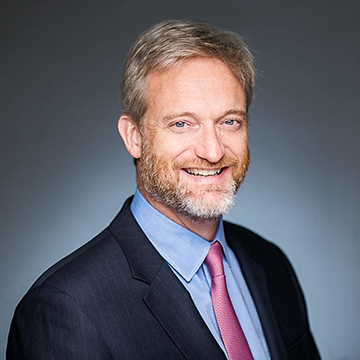Early this morning, President Donald Trump met with Russian President Vladimir Putin in three back-to-back meeting sessions. Below, NSI experts weigh in on the outcome of the meetings and what they mean for future U.S. – Russia relations.
July 16, 2018
 Andrew Borene – NSI Visiting Fellow; Former Associate Deputy General Counsel, U.S. Department of Defense
Andrew Borene – NSI Visiting Fellow; Former Associate Deputy General Counsel, U.S. Department of Defense
“We definitely need to wait and see what gets said on the record and what specific action items come out of the meeting, before we can make reliable assessments about it.

Jamie Fly – NSI Visiting Fellow; Former Foreign Policy Advisor to Senator Marco Rubio
“President Trump’s performance at a press conference earlier today with Russian President Vladimir Putin was nothing short of disgraceful. He turned an opportunity to send a strong deterrent message against future Russian interference in American democracy into an attack on American institutions that only empowers our enemies.Instead of pushing back against the long trail of death and destruction that Vladimir Putin has left around the globe, President Trump lowered America to Putin’s level. It was “Russia First” at its worst.Luckily, beyond the press conference, it appears as of now, that the damage was limited. There were few signs of progress on arms control, Syria, or other issues. American and Russian interests are fundamentally opposed on many of these key challenges and hopefully Trump administration officials realize that as they follow up with their Russian counterparts after this meeting, even if the President they work for clearly does not.”
 Matthew R. A. Heiman – NSI Visiting Fellow; Former Lawyer, National Security Division, U.S. Department of Justice and the Coalition Provisional Authority, Baghdad, Iraq
Matthew R. A. Heiman – NSI Visiting Fellow; Former Lawyer, National Security Division, U.S. Department of Justice and the Coalition Provisional Authority, Baghdad, Iraq
“Absent Putin reversing himself on his foreign policy agenda, the best result for President Trump is a summit that yields no significant deals. That’s because there are very few opportunities for agreement between the U.S. and Russia. Rather, President Trump should articulate U.S positions in the same blunt style of speaking we saw from him during his meetings with NATO members and Prime Minister Theresa May of the United Kingdom. Trump should make clear that the U.S. opposes and will continue to take strong action against interference in U.S. elections. Trump should say that the U.S. will remain in Syria, we will not tolerate an Iranian beachhead there, and we will support Israel’s campaign of attacking the Iranian backed militias in Syria. Trump should make clear that the U.S. stands with a Ukraine that is democratic and peaceful and enjoys territorial integrity. The chill in U.S.-Russia relations is because Putin is a bad actor on the world stage, and it took the U.S. far too long to realize it. Hopefully, President Trump recognizes that the best deal to be had is no deal.“
Andrew Keiser – NSI Visiting Fellow; Former Senior Advisor, U.S. House Permanent Select Committee on Intelligence
“Similar to the past three occupants of the Oval Office, President Trump has long maintained a desire to improve U.S. relations with Russia. Though I believe it demonstrates a naivety of Russia’s decades-long work against the United States at every turn, there is nothing wrong with this desire in and of itself.
However, despite overwhelming evidence to the contrary from his own intelligence services, President Trump seems to dismiss Russia’s meddling in the 2016 U.S. elections and their consistent, aggressive undermining of U.S. interests around the world. Russia, the GRU and President Vladimir Putin do not respond to nuance and mixed messages, they only respond to direct, unified voices typically coupled with the credible threat of military force.
Though I was heartened to see President Trump raise the issue of Russia’s unacceptable American election interference, he went on to undermine his own government’s position with our top geopolitical foe standing by his side.
With moral equivalency offered between U.S. and Russian actions around the world, it seems Russia has been given a green light to nakedly pursue its’ own interests in Ukraine and Syria, by silencing dissent by any means necessary and by creating trouble all over the globe from Venezuela and Cuba to Moldova and Georgia to North Korea and the Arctic.
How the Russians balance the friendly rhetoric from the President of the United States, with the tough policies his Administration has put forward on sanctions, lethal arms to Ukraine, an aggressive posture in Syria and kicking out Russian intelligence officers from the U.S. remains an open question.”

Dr. Andrea Limbago – NSI Visiting Fellow; Chief Social Scientist, Endgame
“The summit takes place at a time of increased tensions between Russia and the United States. Friday’s indictment details yet again that Russian election interference extends well beyond the DNC breach. It also includes a compromise into state board of elections websites, the data theft of half a million voters, and county-level reconnaissance of election websites, not to mention the bots and trolls leveraged throughout social media to amplify their messaging. Importantly, election interference is only one part of the playbook for Russian interference operations. Russian interference extends well beyond the 2016 election to undermine U.S. national and economic security and should have been the core topic discussed at today’s summit.
Russian interference operations extend well beyond elections, and include compromise and/or reconnaissance of U.S. critical infrastructure, underwater cables that are core to trillions of dollars of transactions and communications, a global campaign targeting routers, not to mention the NotPetya attack which caused over a billion dollars in damage globally or the onslaught of similar attacks on NATO and our European allies. This is the behavior by Russia that is deteriorating the relationship. Attending this Summit without prioritizing Russian interference operations is not only dangerous to our national, physical, and economic security, but it also provides the green light to the growing range of global actors who are increasingly adopting Russia’s interference tactics, knowing they can do so with impunity.”
 Lester Munson – NSI Visiting Fellow; Former Staff Director, Senate Committee on Foreign Relations
Lester Munson – NSI Visiting Fellow; Former Staff Director, Senate Committee on Foreign Relations
““It would appear that this meeting was a missed opportunity at best. President Trump needs real achievements on Syria, North Korea, Russian cyber attacks on our elections and Russia pulling out of Ukraine. Thankfully, the president must defer to Congress on many of the matters discussed today. He has little flexibility on lifting sanctions on Russia absent real progress on these issues. Congress, particularly the Senate, should step up its direct involvement in policy-making for the betterment of our national security.”

